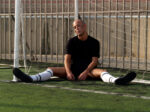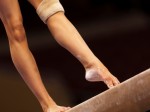
You don’t have to be an elite athlete to feel aggrieved at the thought of retirement from sport.
It can happen at any age, in any code and any level of expertise. For many athletes it can mark an important transition in life and lead to better nutrition.
If it is unplanned, or forced onto an athlete before they are ready, because of factors such as injury; serious surgery; concussion; loss of performance; burnout; or non-selection, the effects can be challenging to physical and mental health.1
Change is needed in daily routine and mindset
When life revolved around sport, daily routines such as: early morning starts; hours of training and competition; care with nutrition and regular checks of weight and body composition, all had a purpose.
Parents may heave a sigh of relief at the reduced expense of club memberships, clothing and equipment and time and fuel now saved from driving across town to practice facilities. However, parents might also feel some grief at this retirement and may miss the social networks their child’s sport afforded them.
Some athletes may see this as an excuse to party on foods they have been avoiding. A chance to eat more takeaways, snack foods and confectionary, to drink more soft drink or alcohol, while other athletes may feel quite devastated at the thought of retirement and prefer to cling onto restrictive dietary practices that feel familiar even if long overdue for reassessment.
In the early stages of retirement an athlete’s ability to adapt will depend on their personal development; career achievements; ability to transition onto other sports with a similar skill set or learn new ones and also will depend on the level of social support and mental health education that they receive.2
The mental health fall-out
For some athletes, whose identity is linked to their athletic proficiency and the expectations of their ‘fan base”, retirement can be challenging and have a negative effect on their self- perception, beliefs and quality of life often leading to depression and anxiety. 1,2
Disruption to this sporting identity can lead athletes into disordered eating; eating disorders and compulsive exercising in an effort to maintain their former level of weight and fitness.
This drive may see some athletes pushing through the injury or illness in the hope of a quick comeback. While this latter tactic might work for some initially, a return to sport does need to be well supervised by medical and coaching staff using screening tools to assess readiness for return to play and ensure that injuries do not lead on to life-long disabilities and health problems. 1
For those involved in weight dependent sports, body image can be hard mindset for some athletes to alter.
One research group recently finding that although 75% of a group of retired gymnast’s and swimmers classified themselves within a healthy body mass index range of 18-25 kg/m2, 55% were still dissatisfied with their current body weight and 59.6% were trying to lose weight 3
Equally disturbing is the opposite response of eating everything after retirement. Irregular meal patterns and infrequent nutritious food was found amongst 42-65% of athletes compared to 26% of currently competing athletes 4,5
Over time increasing adiposity and changing body composition can lead to higher levels of body dissatisfaction and grief. These feelings can negatively affect self-esteem, self-worth, physical condition, competence and attractiveness, particularly amongst athletes who held a strong athletic identity. 6
Retirement may be a whole life package
For senior athletes, retirement from sport may be part of a planned retirement from full-time work as well. If athletes have played at club level for many year’s then not only may there be a loss of friendships and life purpose by the individual athlete but also for the sporting organization, there may be a loss of historic club knowledge and technical skills along with their membership.
Often senior athletes will transition in the sport to club management, coaching, refereeing or media commentating roles. While this can offer preservation of good health and skills within the sport it is still important for the athlete to reassess their nutritional needs for the job.
Education is ‘key’ so It is important for sporting organization’s and health professionals to acknowledge the impact that retirement can have on athletes while they are still training, by encouraging young athletes to develop a wide skill set; to keep up with academic achievement; to align with and to develop social networks and other talents outside of the sporting arena as a backup.
Not only can this approach benefit the sporting environment but also help athletes to maintain better physical and mental health.
The nutrition message
- Whatever our level of activity or age it is important to match our energy and nutrient intake with our energy output. While our body composition may alter when sporting commitments change, with knowledge, it is still possible to remain within a healthy body weight range.
- For young athletes, transitioning onto another sport, it is just as important that their nutrient intake is adequate to meet their needs for growth as it is for an older retiree to ensure that their diet is sufficient to maintain muscle strength and bone density as they age.
A sports dietitian can help retiring athletes master the art of doing this which can greatly improve the quality of life, reduce non- communicable diseases e.g. diabetes, obesity and heart disease and also reduce the risk of the other extremes of overtraining and under-eating.
- Learning how to maintain a healthy body weight and level of fitness should not be seen as just the responsibility of our athletic population but something that we can all do for a healthier, fitter lifestyle.
If you would like a nutritional assessment and advice on how to maintain a “match fit body” for life, then contact us today.
More articles by Lea on related topics
Sports nutrition for senior athletes
Alcohol and sport: is it a good match for you?
Time your energy for better performance
Orthorexia Nervosa- when healthy eating can make you sick
Don’t let energy deficiency ruin your health
Don’t let stress fractures slow your performance
References
- Buckley GL, Hall LE, Lassemillante AC M, Ackerman KE, Belski R. Retired athlete and the intersection of food-body: A systematic literature review exploring compensatory behaviour and body change. Nutrients 2019 June:11(6):1395.
- Reardon CM.et al. Mental health in elite athletes: International Olympic Committee Consensus Statement (2019) Br.J Sport .Med. 2019; 53:667-699.
- Papathomas, A.; Petrie, T.A.; Plateau, C.R. Changes in body image perceptions upon leaving elite sport: The retired female athlete paradox. Sport Exerc. Perform. Psychol. 2018, 7, 30–45. [CrossRef]
- Cooper, H.; Winter, S. Exploring the Conceptualization and Persistence of Disordered Eating in Retired Swimmers. J. Clin. Sport Psychol. 2017, 11, 222–239. [CrossRef]
- Stirling, A.E.; Cruz, L.C.; Kerr, G.A. Influence of Retirement on Body Satisfaction and Weight Control Behaviors: Perceptions of Elite Rhythmic Gymnasts. J. Appl. Sport Psychol. 2012, 24, 129–143. [CrossRef]
- Greenleaf, C. Athletic body image: Exploratory interviews with former competitive female athlete. Women Sport Phys. Act. J. 2002, 11, 63–88. [CrossRef]






























































Leave a Reply